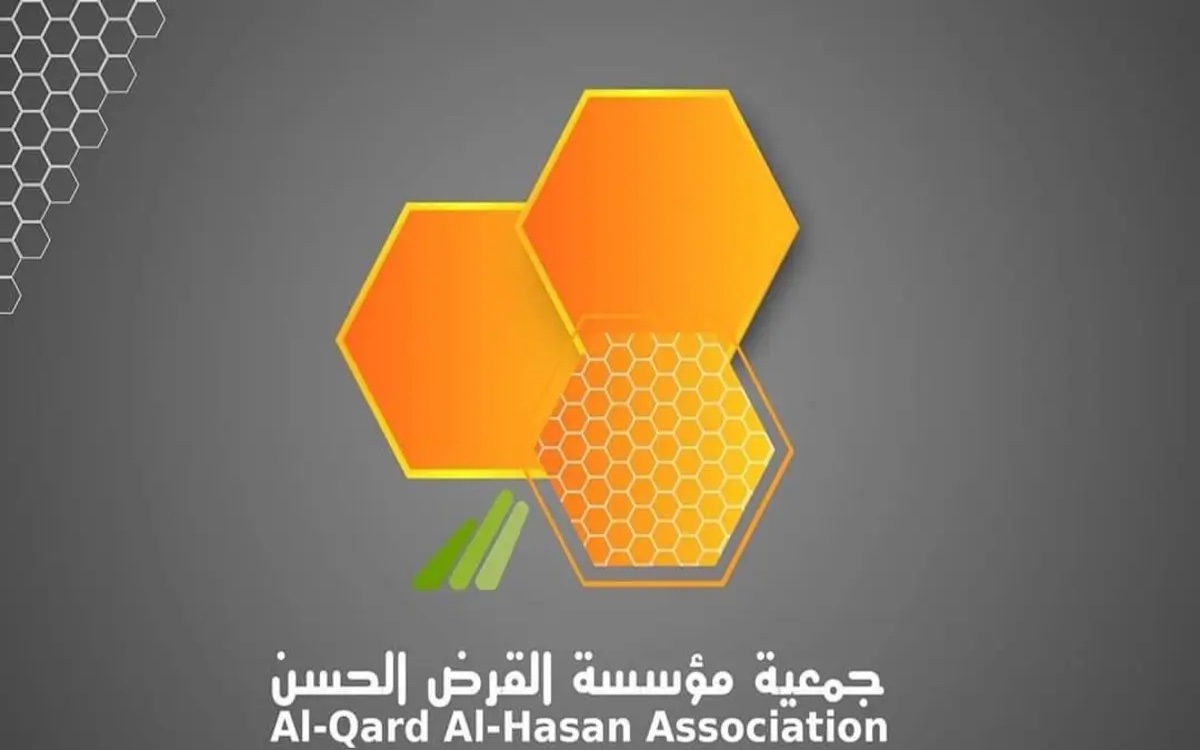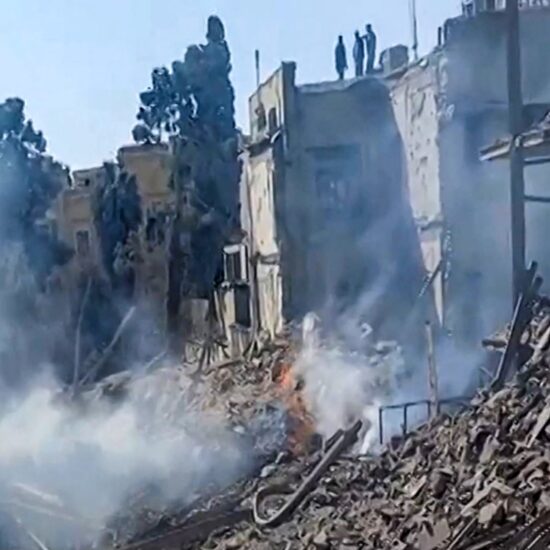
In lieu of the Israeli Invasion of Lebanon in 1982 and the resulting socioeconomic devastation, the Al Qard Al Hassan Association was established. In 1987, the Ministry of Interior granted Al Qard Al Hassan the registered notification (i.e. Authorization 218 A.D).
The origin of the name of Al Qard Al Hassan comes from the Quran, and refers to the entirety of good deeds that humans carry out for the sake of God’s will. Therefore, Al Qard Al Hassan is attributed to God.
Al Qard Al Hassan essentially acts as Hezbollah’s socio-economic wing. Although it was incorporated in the year 1987, it only came under the spotlight recently, a few years before the banking sector in Lebanon collapsed. The core activity of the association is to grant its customers loans in US dollar currency in exchange for the equivalent in value gold guarantees, with an additional margin of 20 percent of the guarantee. Television reports have also revealed that Al Qard Al Hassan is operating similar to any bank; it even has its own ATM machines.
Research was initiated to inspect whether Al Qard Al Hassan functions as a typical financial institution that engages in the legal system of Lebanon’s Central Bank (BDL) and acquires a legal license as a financial institution to provide financial services. The only decisive conclusion reached, however, was that Al Qard Al Hassan only informs the Ministry of Interior of its incorporation. Nevertheless, various questions were raised regarding the legal implications and impact of the association’s operations.
The legal implications of operating financial activities not regulated by the centralized system of BDL
On August 1, 1963, the Law of Money and Credit was issued. Article 12 of this law states that BDL is incorporated. Moreover, according to Article 13 of this law, BDL is a public entity that is financially and legally independent.
Also, according to Article 70 of the above law, the objectives of BDL are as follows:
- To preserve the value of the Lebanese currency
- To preserve the economic stability
- To preserve the general welfare of the banking sector
- To develop the financial and monetary market
However, article 76 of the same law stipulates that BDL can order banks to deposit reserve funds in BDL up to a certain ratio of the obligations generated from the deposits of depositors and the borrowed amounts. It can also order the banks to deposit up to a certain threshold, and reserve the amount of the belongings to be decided by BDL.
Article 80 of the above law establishes a clearing department through which all operations related to gold and foreign currencies should pass.
Moreover, according to Article 82, BDL cannot implement the operations mentioned above except with the public sector, financial institutions, banks domiciled in Lebanon, foreign central banks, foreign banks, financial institutions, and international financial institutions. However, Article 98 states that BDL opens an account for the deposits of banks and financial institutions.
The law regulates the financial and monetary system under the control of BDL. Currently, Al Qard Al Hassan falls completely outside of that system, which renders it in violation of the general competence and role of BDL in preserving the national economy and in preserving the value of the Lebanese currency and the welfare of the banking sector.
Al Qard Al Hassan certainly falls outside of the system because it refrains from obtaining official authentication from BDL including its transactions in the clearance department, depositing reserve funds, and taking safety measures to protect the gold mortgage of the borrowers.
On the other hand, Article 121 defines banks as institutions with a core activity to grant loans. And according to this article, funds received from the banks are either deposits or generated money from loans.
Furthermore, Article 125 prohibits practicing financial activities in the form of associations. Per the rules and regulations of Article 10 (dated August 6, 2001), and Article 128 (as modified in the legislative decree number 77, dated June 27, 1977) of Law 347, the form should be a joint stock company and should obtain a license.
Banks and financial institutions should have capital as decided by law, abide by the provisions of BDL, be registered by BDL, and most importantly, moderate and balance the funds received from the clients in a way to preserve the client’s deposits.
According to Article 178 and beyond, financial institutions, especially those that provide loans and facilities, must obtain an official permit from BDL and should take the form of a joint stock company and not a Non-Governmental Organisation. Now if we consider Al Qard Al Hassan as a financial institution and not a bank, it must comply with the above regulations. It should have capital and investment contributions and must be registered by BDL.
According to Article 181, it is prohibited to declare that an institution is a financial one unless all conditions are met and a permit is granted by BDL and registered by this article. Such institutions must abide by the regulations of BDL and must be under its supervision.
In the case of a violation of the above provisions, criminal sanctions should be imposed by law.
After the development of E-payment methods, transactions, ATMs, Credit Cards etc., a new law was established. Law number 133, dated September 26, 1999, and published in the 51st edition of the Official Gazette, page 2862, regulates and grants BDL the power to organize the process.
Al Qard Al Hassan has ATM machines, but is seemingly unconcerned with these provisions.
Al Qard Al Hassan is a non-registered NGO, which does not meet any of the conditions, and which absolutely falls outside of the financial system.
Red Flags are raised regarding not only suspicion but also the certainty of money laundry acts.
The legal impact of granting personal loans in exchange of gold guarantee
Article 2 of the Money and Credit Law stipulates that the value of the Lebanese currency is decided in comparison with pure gold, and Article 4 of the same law stipulates in the last paragraph that gold coins could be issued whenever the law allows returning the value of money in gold.
However, the terms and conditions of gold coins must be determined by a decree issued by the government.
The law has to state when to return the value of the money in gold, and the terms must be defined by the government.
If we compare the above articles to the case of Qard Al Hassan, it is clear that the latter grants loans in US dollars in exchange for gold mortgages. Therefore, if the borrower does not pay off the loan, Al Qard Al Hassan is able to occupy or sell the gold
In one way or another, the US dollar loan, in case of default, is settled by gold in clear violation of Article 4.
But what if the value of gold decreases or increases? What if an international crisis intervenes and the US dollar depreciates? What is the impact of granting non-regulated loans in foreign currency? How does this affect the banking sector in the sense of competition, in sense of security and in sense of trust?
The financial impact of granting personal loans in exchange for gold guarantee
In a country ravaged by corruption and terror, two forms of monsters tend to emerge: disaster capitalism, theorized by Naomi Klein in 2007 in her book The Strategy of Shock, and its counterpart, the anti-capitalism of ruins, evoked by Anna Lowenhaupt Tsing in 2017 in her book The Mushroom of the End of the World: On the Possibility of Life in Capitalist Ruins.
Disaster capitalism helps to trigger further disasters, and then it takes advantage of them to dismantle essential public infrastructure and privatize large parts of public interest activities in brutalized and impoverished societies. The anti-capitalism of ruins, on the other hand, thrives and grows in the ruins of a collapsed country and offers possibilities for survival in a diminished alternative reality. Through a succession of seemingly little to nothing, it leads the economy and the country into a dark and undesirable place from which it is very difficult to escape.
The development of Al Qard Al Hassan raises the fear that the country is turning into a lawless and borderless zone. It is also a non-governmental organization engaged in financial activities, such as pawnbroking, or lending money in exchange for gold deposits. It has recently installed ATMs that allow those who receive direct payments from Hezbollah and those who benefit from the institution’s loans to withdraw money in Lebanese lira or US dollars without any restrictions. Al Qard Al Hassan is a de facto unregulated financial institution conducting financial activities that should comply with international compliance, norms, and standards – but it does not.
In short, the US-sanctioned entity, considered the financial arm of Hezbollah, is the epitome of an institution that works on the bangs of the international monetary system and aspires to be an alternative to a moribund banking system. If not constrained, it will jeopardize any possibility of Lebanon’s return to a conventional banking system and will take the country to the brink of an irremediable disaster. Indeed, all the ingredients are there for a long dark night.
If left unchecked, the Al Qard Al Hassan association could help lead to the complete collapse of the banking system as a result of the end of one of history’s biggest Ponzi schemes and the loss of trust in bankers and in the Central Bank.
It could lead to the systematic destruction and dismantling of public institutions and the consequent descent of the vast majority of the population into poverty and misery.
It exacerbates the permeability of borders and the militia control of all entry points, which leave the door open to cross-border smuggling and trafficking of all kinds
In these ruins, an unconventional banking system is moving into high gear, taking advantage of precariousness, ideology, arms and foreign support. Exchanging US dollars against gold by a party that claims its opposition to the US, in the context of its operation and expansion, can only be seen as another step in the constitution of a huge in-house money laundering machine. The rise of a new outlawed system on the ruins of an old, decaying one undermines any hope of creating something sustainable and jeopardizes the future of the country. The worst is yet to come.
Meanwhile, the Lebanese are busy guessing the name of the future president of the non-republic of Lebanon and ignore the obvious: it has four legs, it barks, it wags its tail, but to them, it is a giraffe.
Adib Tohme is a writer, economist and lawyer.
Rafik Ghraizi is a lawyer.
The opinions expressed are those of the author only and do not necessarily reflect the views of NOW.







